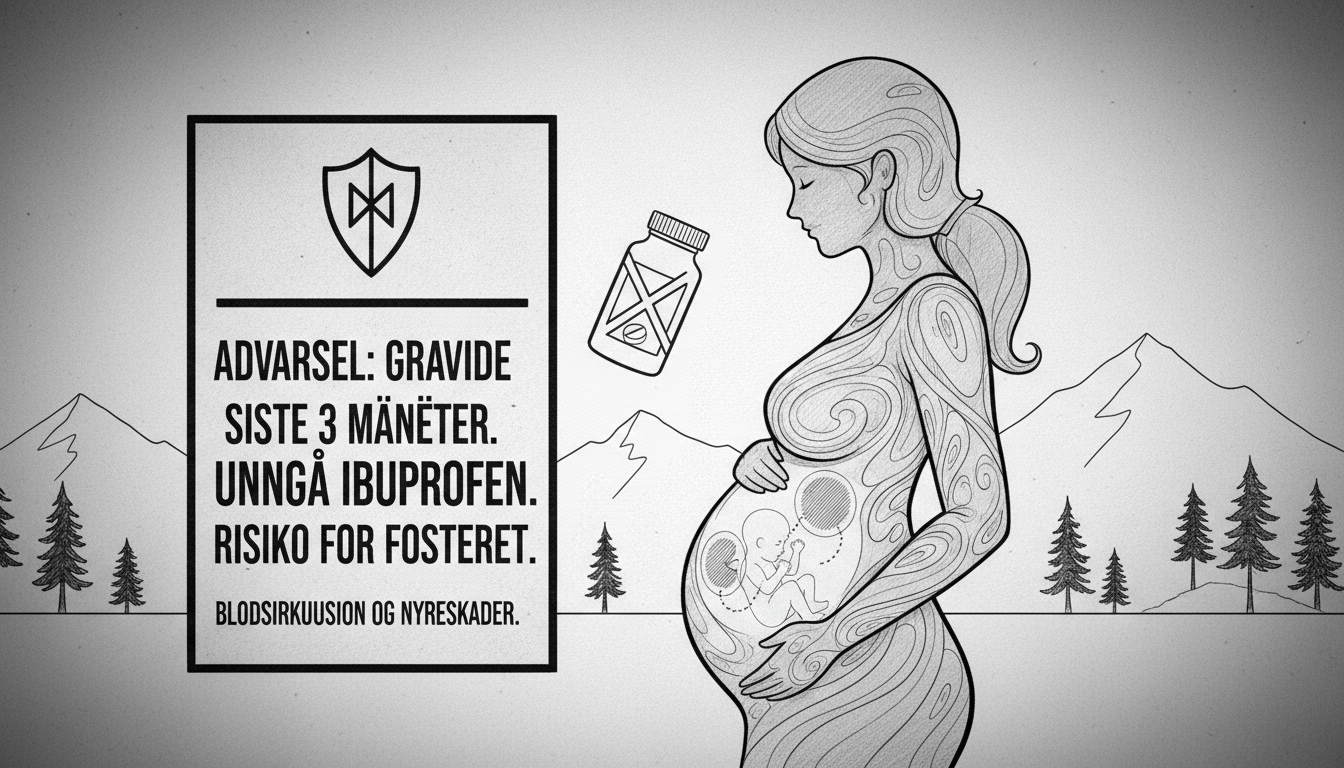Norwegian health authorities are issuing urgent warnings about ibuprofen use during pregnancy. The medication, sold under brand names like Ibux, poses serious risks to unborn babies, particularly in the final three months of pregnancy.
Medical experts state pregnant women should absolutely avoid ibuprofen during the last trimester. The drug can affect fetal blood circulation by causing critical blood vessels to close too early. It may also lead to serious kidney problems and bleeding complications.
Ingrid Aas, a senior physician at the Norwegian Medical Products Agency, explained the dangers. "Pregnant women should definitely not use ibuprofen during the last three months," she said in a statement. "This could be potentially dangerous for the child."
Even earlier in pregnancy, doctors advise against ibuprofen use without medical consultation. The medication may impact kidney development and cause fetal abnormalities.
Children with chickenpox represent another high-risk group. Ibuprofen should never be given to children experiencing this common childhood illness. "The main risk is developing a very serious skin infection that could require hospitalization," Aas noted about children with chickenpox.
Other groups needing caution include patients with kidney failure, heart conditions, those taking blood thinners, antidepressants, or blood pressure medications. People with stomach ulcers, intestinal disorders, and some asthma patients should also avoid ibuprofen.
Recent studies show concerning trends among young people using pain relievers like Ibux and Paracet for unapproved purposes. Many teenagers report using these medications for sleep problems, anxiety, and stress relief.
"It turns out that it's relatively common among young people to use over-the-counter pain relievers for life problems," Aas observed. "This is completely different from what they're made and approved for."
Following a recent review, Norwegian authorities decided to maintain over-the-counter sales of ibuprofen but with clearer warning labels. New packaging with enhanced warnings will appear in stores within months.
Medical associations have welcomed the improved labeling. Torgeir Hoff Skavøy, leader of the Norwegian Association of General Practice, expressed support for the changes. He noted that while some wanted ibuprofen removed from general store sales, better warnings represent a positive step.
Midwives also play a crucial role in medication guidance during pregnancy. Lena Henriksen, political leader of the Midwifery Association, confirmed Norwegian midwives stay updated on medication risks. They routinely warn pregnant patients about ibuprofen dangers.
The timing of these warnings highlights ongoing concerns about public understanding of common medications. Many consumers mistakenly view different pain relievers as interchangeable when they carry distinct risks and benefits.
Health officials emphasize that while ibuprofen remains available without prescription, consumers must make informed choices based on their individual health circumstances and risk factors.
